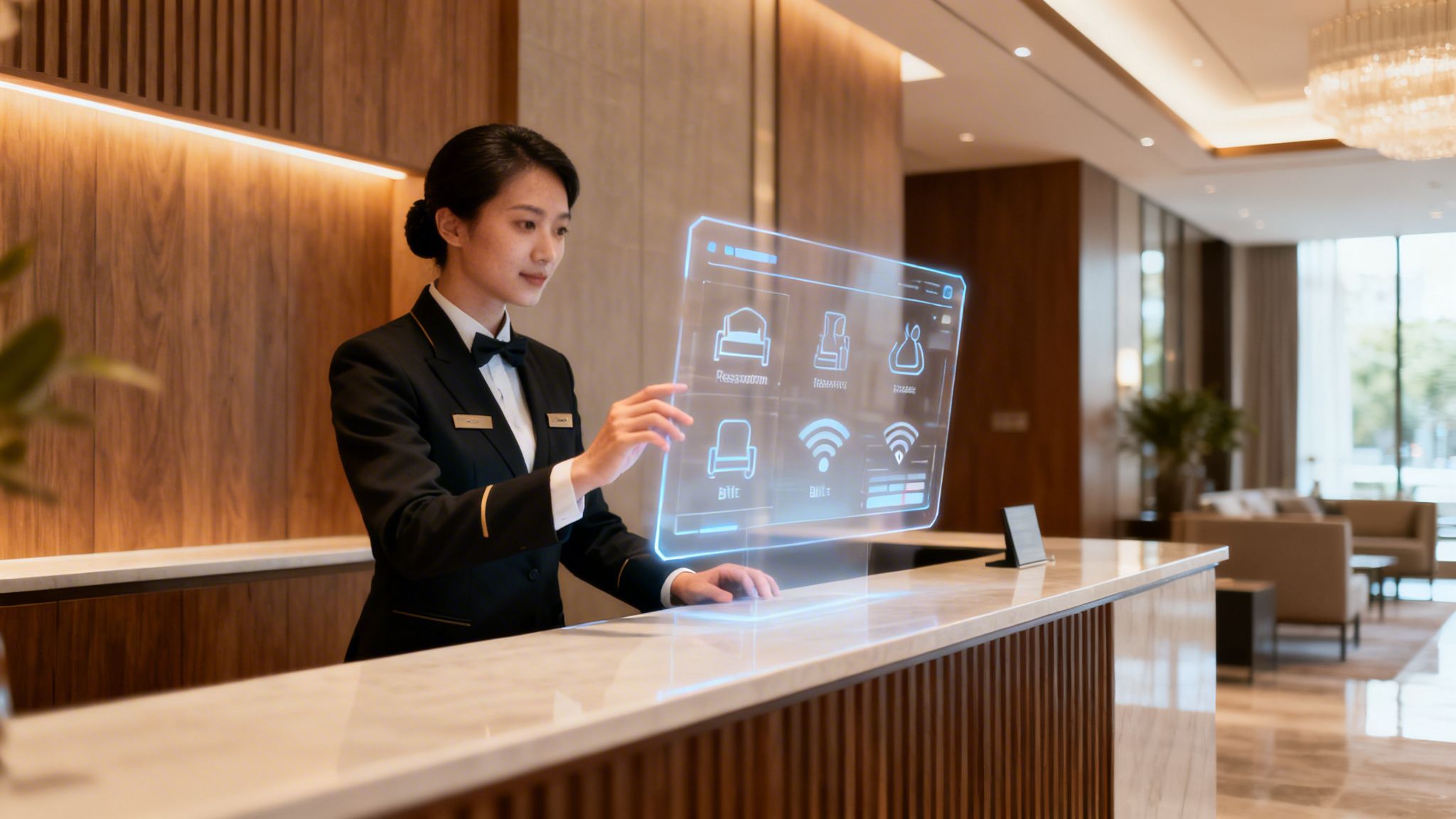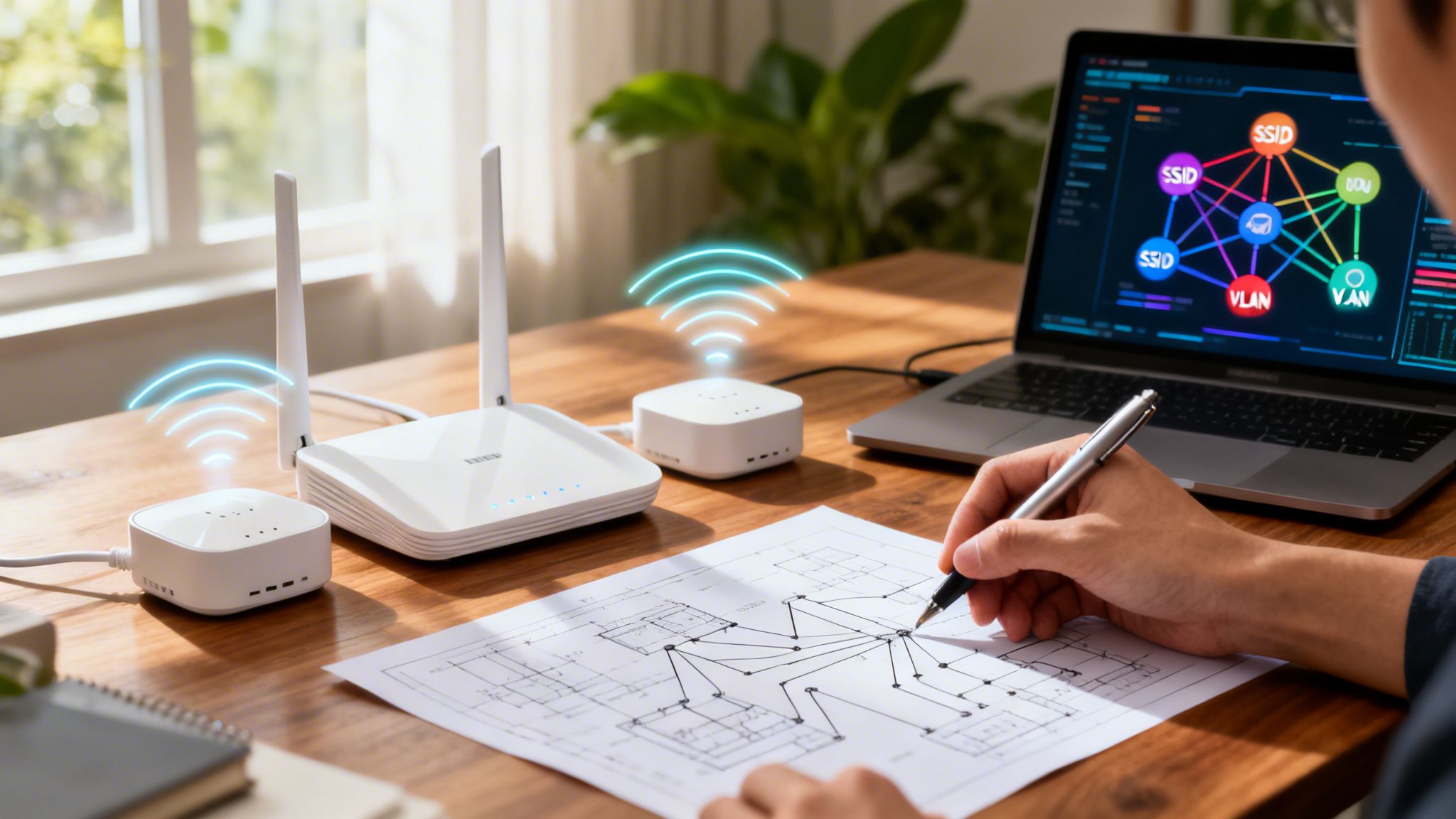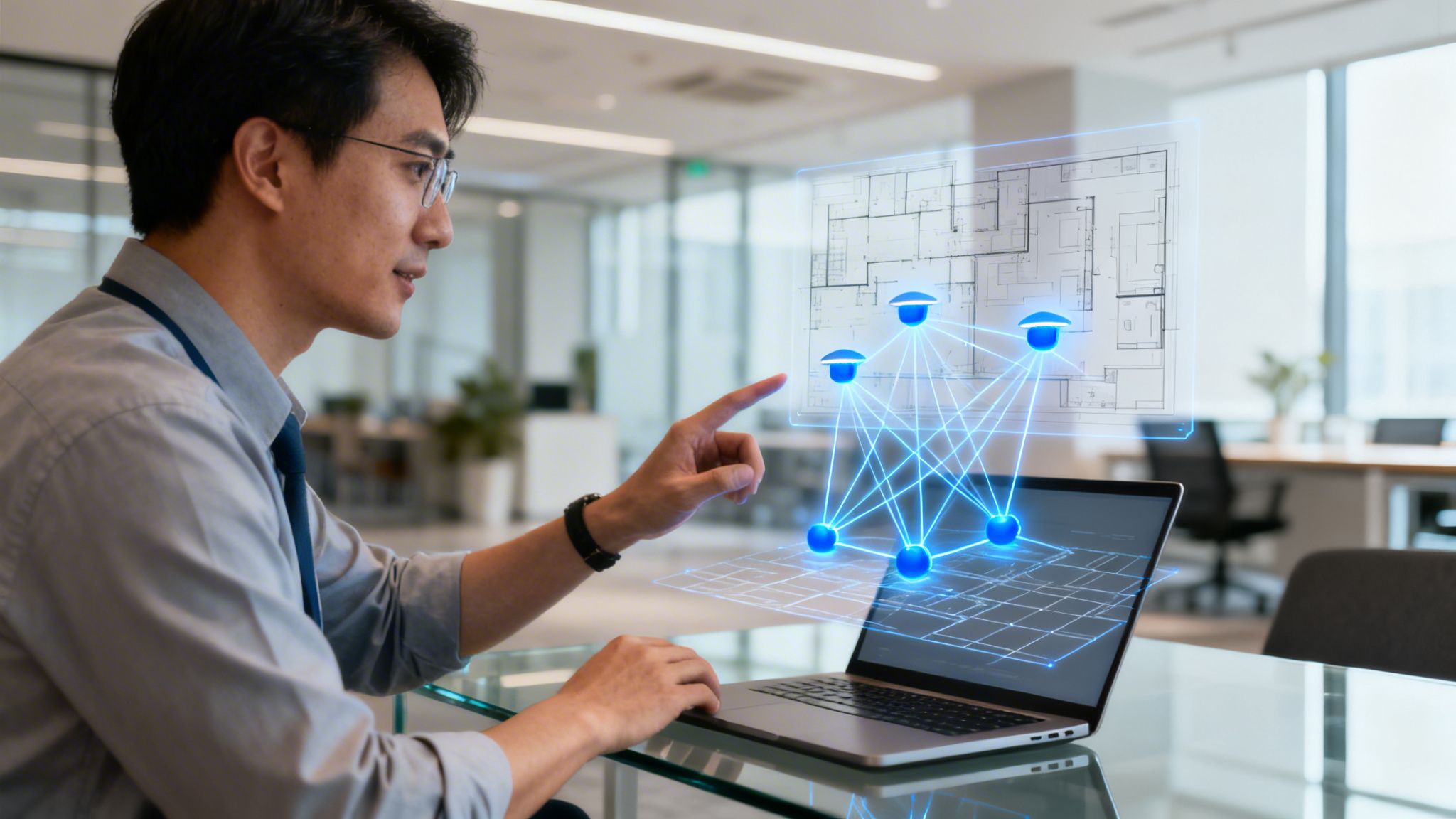Leisure Facility WiFi: Connecting Your Gyms, Spas, and Pools

Leisure facilities like gyms, spas, and wellness retreats require fast, free, secure, and reliable WiFi services to remain competitive in today's marketplace. WiFi is a top consideration when choosing your venue, so it should also be a top priority for management.
This post examines WiFi services and technology in the leisure industry.
Why WiFi is Crucial in Leisure Facilities
Historically, a leisure facility was measured in terms of the physical amenities the venue offers. The advancement of the digital age led to incorporating technology into the guest experience, requiring WiFi services to support cellphones, tablets, or laptops.
Whether it's WiFi on a train or in the pool, guests now expect venues to offer free, fast, reliable WiFi. Failing to deliver on these expectations results in a poor visitor experience and negative reviews for the business. Offering WiFi at your venue increases customer satisfaction and opens up engagement opportunities with the company.
Today's guests require WiFi to access email and social media, stream video, or download content. A great WiFi experience enhances the overall experience, encouraging repeat business. Leisure facilities can leverage WiFi to offer guests value-added entertainment services like streaming live events, workout videos, or music playlists.
Venues can use the data collected through the WiFi network to analyze customer behavior and gain insight into the guest experience at the venue. This data is useful for displaying promotions and tailoring services and offerings to guest preferences. This strategy boosts guest engagement and increases upsell opportunities.
WiFi for Gyms: Keeping the Energy High
Gyms are a prime example of a leisure facility requiring a guest WiFi network for members. The gym is a place of refuge for many people, and they often retreat into themselves, watching a movie or YouTube video while grinding away on the cardio machine.
Ensuring you have a reliable and effective WiFi network for guests improves the gym experience for members and attracts prospects to join your gym. If your gym doesn't offer WiFi, prospective members will find another facility to use, even if it means traveling further away from home to get it.
However, gyms must ensure they have the correct setup of their network and hardware to offer an enjoyable user experience. When hundreds of members try to connect to the guest network, it can cause congestion issues, reducing speed and the user experience.
It's critical for gyms to hire a professional to conduct a site survey and assess the location's need for hardware and access points to ensure adequate venue coverage. The venue should provide sufficient bandwidth and coverage to ensure a favorable user experience, or they risk members complaining about the service.
Optimizing Gym WiFi
Large gyms and fitness facilities have several floors packed with equipment ranging from iron dumbbells to electronic cardio machines and workout areas like yoga and aerobics classrooms.
A single WiFi router behind the front desk ranges from 40 to 80-feet. That's insufficient to cover the entire venue, leaving dead zones across the facility. Also, a single router will struggle to accommodate more than ten connections, leaving many members without access.
The gym must install access points throughout the facility to increase coverage and accommodate more users on the network. A simultaneous dual-band AP operates at 90Mbps and 60Mbps, respectively, and a switch is necessary for the installation if it requires more than four APs in the facility.
WiFi for Spas: Ensuring a Seamless Relaxation Experience
Spas are another venue requiring WiFi services for guests. Suppose clients are relaxing with a facial or massage. In that case, they might want to use their phones to access meditation apps or personalized playlists to enhance their experience.
Proper network planning and placement of APs are essential to maintain a tranquil atmosphere. Clients don't want to see an electronic device flashing away while enjoying a massage or relaxing to a meditation.
A professional WiFi installation company will plan the layout of the network and APs to avoid intruding on the visitor experience.
Security Measures in Spa WiFi
A professional WiFi solution incorporates robust security protocols. The goal is to protect the guests' devices and the facility's network infrastructure from hackers and cyber-attacks
Effective SSID Management is essential to prevent guests from getting access to the network. The SSID should only be available to employees. Proper WiFi installations should feature encrypted protocols like WPA2 or WPA3.
The server should authenticate devices before allowing access to the network to prevent hackers and infected devices from breaching the system. Isolating the network and implementing captive portals benefits network security.
A captive portal requires login information to access the system. It allows for rate limiting and monitoring, improving network efficiency and security. This prevents guests from accessing offensive content and stops hackers from launching "man-in-the-middle" attacks that hijack the network and steal customer data, like credit card details.
WiFi for Pools: Dive into Connectivity
Hotels and resorts must offer WiFi for outdoor common areas like the pool. Guests want to relax by the water and browse social media, listen to music, and watch videos without worrying about moving around the pool to get a signal.
Installing APs in outdoor common areas like the pool amplifies the signal for a better user experience, segregates the network for security, and enables systems like poolside room service or guest tracking.
A site survey conducted by a professional WiFi installer will determine the optimal coverage requirements, including the number of APs required for effective coverage inside and outside the leisure center.
The equipment must be weatherproof against rain and moisture and positioned away from the reach of animals and people. The system should scale easily, offer effortless management, and integrate with bookings and security. The network must also provide scalability to future-proof the system.
Conclusion
As we move deeper into the digital age, WiFi is an essential business tool for leisure centers, spas, and gyms. Failing to offer fast, dependable WiFi leads to a poor customer experience and a loss of business to facilities providing WiFi services.
Guests require effective WiFi to enjoy their leisure center experience. Whether relaxing at the spa or pounding on the treadmill, guests need internet access for entertainment. Effective WiFi systems benefit the guest and bolster management and operational practices within the business.
It's vital for leisure centers to segregate their network, allowing a guest portal and a back-of-house network to prevent bad actors from penetrating the systems and stealing valuable data. The system should also provide adequate security to stop infected devices from accessing the network.
With the right setup, leisure centers improve the customer experience and attract new business through word-of-mouth marketing and better reviews on Yelp, Google, and TripAdvisor. It's essential for management and owners to assess their current WiFi and upgrade it where necessary to improve the guest experience.












